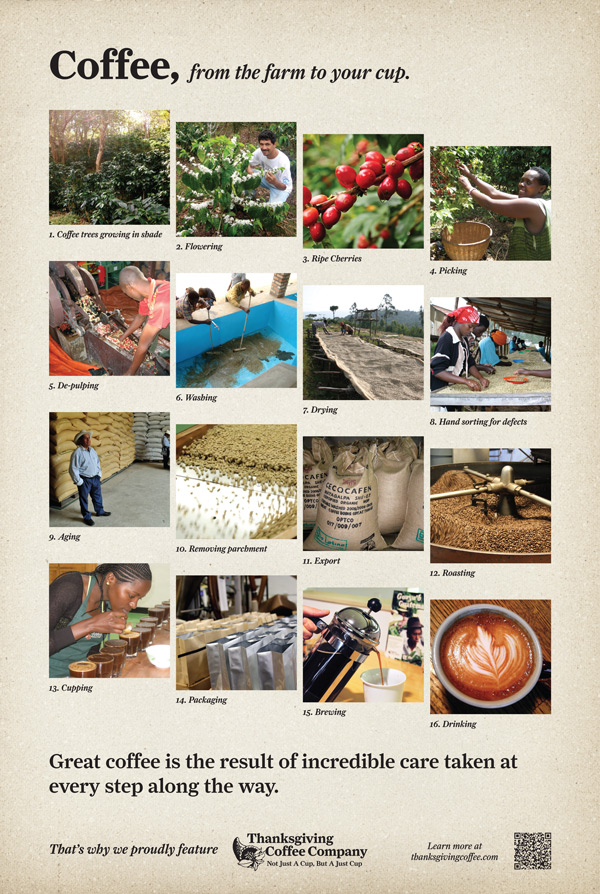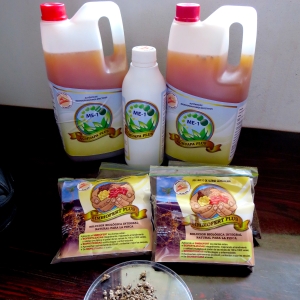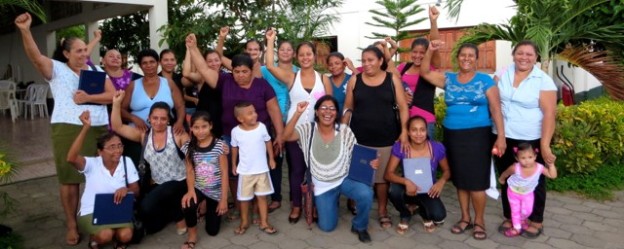In this guest blog Social Business Network/Ético intern Nora Burkey applies the frameworks outlined in a classic text used in many business and development schools to form an analysis of Ético’s business model:
In their newly revised book “Reframing Organizations: Artistry, Choice, and Leadership,” Lee Bolman and Terrence Deal maintain that people live their day-to-day lives as parts of many complex organizations, from schools to sports teams, from families to the working world, and more. Cooperativization in Nicaragua is a very clear example of how people commit to organizations, and likewise Ético: The Ethical Trading Company provides another example of organization in the workplace, as it is a company 100 percent owned by organizations who work together. As a very innovative company that at its core is promoting a fairer model for international trade, how can Ético show that managing so many organizations and interests is not only possible, it is better?
As the United States has ruled that corporations may be considered people, at least symbolically, perhaps it is not so strange to consider Bolman and Deal’s point that companies or organizations need ethics, or a soul, to survive. They need a sense of identity. Bolman and Deal write,
Many would scoff at the notion that organizations can have soul, but there is growing evidence that it is a critical element in long-run success. A dictionary definition of soul uses terms such as “animating force,” “immaterial essence,” and “spiritual nature.” For an organization, group, or family, soul can be viewed as a bedrock sense of identity, a deep confidence about who we are, what we care about, and what we deeply believe in….Growing evidence suggests that tapping a deeper level of human energy pays off (p. 396).
Quite possibly it is the very soul of Ético that makes it function so well. Ethics, and giving voice to more people within an organization is not only moral, it is equally if not more efficient than power concentrated in the hands of one leader or one owner.
In their book, Bolman and Deal present four frames with which to look at and understand organizations. Their purpose in doing so is to help organizations better manage themselves, as “modern mythology promises organizations will work splendidly if well managed,” (p. 8). Although, they say, there exists book after book on how best to manage a company or organization, very few people understand the importance of joining solutions together and understanding organizations through many different lenses. This is critical, as organizations are made up of individuals who all see differently. Viewing Ético and the cooperatives they work with in light of the four frames outlined by Bolman and Deal gives a better sense of their function, mission, and effectiveness.
The structural frame emphasizes goals and roles for a unified strategy that produces output. The workplace can be viewed as a factory, whereby “the ethical imperative of the factory is excellence: ensuring work is done as well and as efficiently as possible to ensure high-quality output” (p. 400). There are many examples of high-quality, unique and individual output in the work of the cooperatives and Ético. The Body Shop (TBS) buys quality sesame oil from one of Ético’s shareholding cooperatives, Juan Francisco Paz Silva (JFPS). When the price of sesame rose in 2008, The Body Shop and the JFPS Coop renegotiated what the new price was going to mean, and in doing so authored the unique “Recognition of the Unpaid Work of Women.” As an additional example, cooperative members have created their own unique products, from sesame candy to hibiscus wine, all of it at a level of quality that both The Body Shop and small farming communities can be proud of.
In the human resources frame, the organization can be viewed as a family. Bolman and Deal write,
Caring—one person’s compassion and concern for another—is both the purpose and the ethical glue that holds a family together….A caring family or community requires servant leaders who serve the best interests of its members and stakeholders. This implies a profound and challenging responsibility for leaders to understand the needs and concerns of community members so as to serve the best interests of individuals and the community as a whole. The gift of the servant leader is love” (p. 402).
Both authors acknowledge that it seems strange to talk about love in terms of organizations, but maintain that a successful leader of an organization is truly a servant, and serves out of self-less love for the family or organization. The very structure of Ético relies on servant leadership. Historically, The Body Shop had been buying from the JFPS Cooperative before Ético existed. In fact, Ético was born when L’oreal bought The Body Shop to preserve the direct relationship between the JFPS Cooperative and the renowned cosmetics line. What this demonstrates is that Ético was born out of service to the cooperative when the farmers needed a new type of leadership to be able to continue working with a large multinational company.
In the political frame, the workplace can be seen as a jungle where there is a constant battle and the routine seeking-out of self-interested gains. “In a world of competing interests and scarce resources, we are continually compelled to make trade-offs. We cannot give everyone everything they want, but we can honor a value of fairness in making decisions about who gets what” (p. 403). Bolman and Deal maintain that leaders can ensure this type of justice in the workplace by putting power in the hands of employees. “People with a voice in key decisions are far more likely to feel a sense of justice than those with no seat at the table” (p. 403). In the cooperative model, members gets one vote no matter how much land or money they have, and no matter how much they supply to the cooperative. By working with cooperatives, Ético ensures that it works with the most marginalized groups, the smallest of farmers, giving them as much as say as those better off, creating a sense of justice in being a cooperative member.
Finally, in the symbolic frame , “An organization, like a temple, can be seen as a sacred place, an expression of human aspirations, and monument to faith in human possibility. A temple is gathering place for a community of people with shared traditions, values, and beliefs” (p. 405). Above all, workers must feel that the organization is doing something worth doing, that there is some significance to their work. As the founder of Ético has been with the cooperatives from the beginning, instrumental in their creation, Ético is an outgrowth of the existing family. Together, that family has many traditions. For example, each year the cooperatives and Ético share traditions, such as putting on an annual music festival, and so far these traditions have not been broken. There is a very real sense of community, and based on conversations with cooperative members, there is the belief that the cooperatives, as well as Ético, are there to help. The cooperatives believe in what they do and therefore members believe in them too.
Source: Bolman, L. G. & Deal, T. E. (2003). Reframing Organizations: Artistry, Choice, and Leadership. San Francisco, CA: Jossey-Bass.
Nora Burkey is currently a candidate at SIT Graduate Institute for a Master’s in Sustainable Development. She became involved with Social Business Network in August 2013 after connecting with Dean’s Beans Organic Coffee Company, a trading partner of ÉTICO. She currently lives in León, Nicaragua, and plans to continue working with Dean’s Beans and Social Business Network on development projects into 2014.













